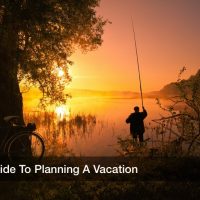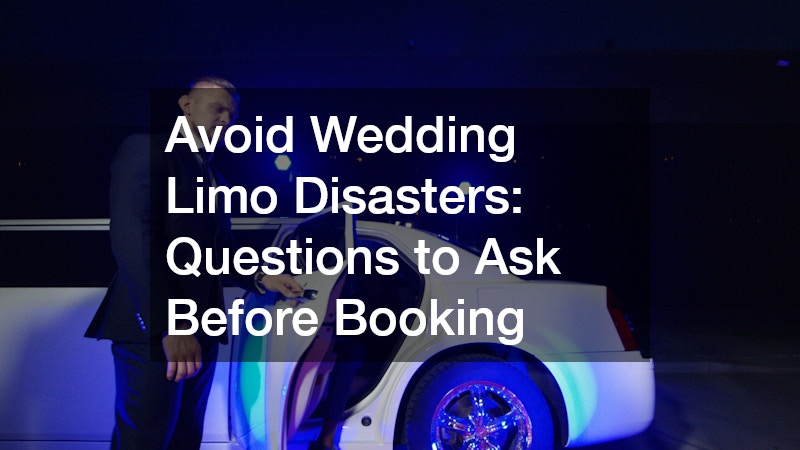
Planning the logistics of a vacation can be the most stressful and the most exciting part of traveling. If you are not careful, you can easily become overwhelmed, disheartened, or even give up on the entire process. This guide will break down the vacation planning process into a step by step outline. This will help you tackle the process in a practical manner, keep you organized, and help eliminate any confusion.
Deciding Where To Go

When deciding when and where you want to go on vacation, you are often constrained by your individual circumstances such as budget, if you are traveling alone or with family or friends, your own work schedule or the schedule of whom you are traveling with, and whether you will be driving or if you have to fly.
It is often the case that you know you want to go on a vacation, but you do not know where. This is the most common starting point for travelers. With the numerous social media sites available, like Pinterest and Reddit, browsing for travel destinations has never been easier or more fun. But beware, this step can become a bit addictive. Below are a few tips to help you decide on a vacation destination:
- Search the web and social media sites for pictures of destinations you find to be stunning and then find more information and research that location.
- Make a wish list of destinations you want to visit.
- Search online marketplaces that offer lodging or homestays, like Airbnb. Once you find a place to stay, research the area it is located within. You can use this method to plan trips to places you have never even heard of before.
- Make use of online flight booking services like Google Flights, which will tell you the cost of flying from your home to anywhere in the world on the dates you specify. These services facilitate the purchase of airline tickets through third party suppliers, which helps you find the best deal possible and makes this step much less work for you.
Once this step is completed you can move onto the more enjoyable steps of planning a vacation.
Deciding What To Do and Where To Go

Once you have decided where you will be going for vacation and have booked your trip, you can begin the second step of the process: deciding what you will be doing and where you will be going once you arrive at your chosen destination. Frequent travelers will tell you this is the most enjoyable part of the vacation planning process. They will also tell you that city travel guides are an incredibly helpful resource for planning ahead of time. This will help rid your trip of chaos and reduce vacation-related stress.
Begin this step by compiling a list of attractions you are interested in that your destination offers. This can be tours, museums, restaurants, or neighborhoods to explore. Again, depending on your personal travel style. You can search the web for what to do in a specific destination, but if you prefer first hand suggestions from actual travelers as opposed to general travel advice, you should stick to travel publications and blogs:
- A site like Pinterest is basically a visual search engine that is full of travel articles and tips. Search a specific location and you will find various helpful articles for planning your trip.
- A site like WikiVoyage, which is basically a Wikipedia for traveling, is compiled entirely by actual travelers and is incredibly helpful when planning a trip. On this site, you can find tips on what to do, where to visit, and how to get around within your destination.
- Search for your chosen destination on sites like Trip Advisor or Reddit and see what other travelers are saying. Opt for sites that provide first hand experiences and specific suggestions from actual travelers to help you judge your potential vacation destination.
Determining Your Style of Travel

When determining what to do and where to go at your chosen destination, it is important to understand that every individual has their own unique style of traveling, which varies based on their personality. Some individuals are spontaneous and do not like to be constrained by plans. Other individuals like to plan and follow a set schedule or a day to day itinerary. Some people enjoy exploring the city on foot, while others just want to lay on a beach and relax.
Everyone has their own idea of an ideal vacation, and there is no definitive right or wrong way to travel, there are just different preferences and styles. For first time travelers, it is strongly recommended to plan your travels in advance. The “plan as you go” style is known to induce anxiety and panic in inexperienced travelers, which will likely make for an unenjoyable traveling experience. First time travelers should conduct extensive research before arriving to minimize the time spent in a hotel or lodge frantically making last minute plans.
Planning in advance does not mean creating a schedule or itinerary that details your every minute by minute move, which can actually be just as stressful as not planning at all. You have to find the balance between planning and going with the flow that works best for you. This process of planning your vacation can ease your anxiety about a trip, while also enhancing your anticipation.
When planning, you do not want your days to feel overly stuffed with events and activities, but time spent planning once you have already arrived is time you could rather be spending enjoying your vacation. However, if you have set plans for every single day of your trip, you could be facing disappointment when you inevitably stray from your plans, which is expected and perfectly okay.
When planning your vacation, it is important to leave room for flexibility. Below is a recommended list of some things you should and should not plan:
- Do not make an itinerary or set plans for every single day. As mentioned, you will be disappointed when your plans fall apart due to events in and out of your control, like the weather.
- Instead, plan out a few options for each day. This way, each day you can choose various options depending on what you want to do that day. If you are feeling tired, you can choose an activity that requires the least amount of walking or choose the museum if it is raining. You can also leave one day completely unplanned to catch up on anything you may have missed.
- Do not plan every meal. When traveling, you may experience an increase in appetite due to increased activity, and you will have to abandon your meal plans very quickly. Some days you may sleep in later and only have coffee, brunch, and dinner, and other days you may require three meals.
- Instead, make a small list of restaurants you absolutely want to visit, but try not to plan when you will go. Leaving your meals completely unplanned is absolutely fine, too. You can always ask locals or experienced tourists for recommendations.
- Do not plan every outfit. Depending on facts such as your mood and the weather, it is not likely you will stick to your planned outfits.
- Instead, pack a variety of clothes that can be easily mixed and matched.
Once you have eliminated these factors you should not plan for, you can spend more time and energy on what you need to plan, such as accommodations.
Planning Your Vacation Accommodation
After you have decided where you want to visit and have a general idea of what you will be doing there, you can begin booking your accommodation. Begin by searching for accommodation near the sights and activities you will be focusing on. Sleeping arrangements are something you usually want to book in advance. Arriving at your chosen location and then booking sleeping arrangements is not recommended, as it could potentially be stressful. Planning in advance is all about minimizing these types of situations.
When planning for accommodations, use resources such as:
- For traveling abroad, use HostelWorld to find budget friendly hotels, hostels, and bed and breakfasts. Browse the reviews to make sure the accommodation is up to your specific standards. It is recommended to book a hotel as close to public transit or center city as possible.
- TripAdvisor is the preferred site for many frequent travelers who want to read reviews or see photos of a hotel or hostel before booking. With these types of sites, you can find information about the various features a hotel offers, such as free WiFi, a concierge service, a hot tub, or a swimming pool and spa areas.
- To find the best deal possible, use one of the many tools available on the web that compares hotel deals, such as Trivago’s. Just enter information such as check in time, check out time, and room size, and comparing hotel deals has never been easier.
- Another hotel search engine for finding the best deals and savings is HotelsCombined. This tool compiles deals from all of the hotel deals sites in one centralized location, including, but not limited to Hotels.com, Booking.com, and Expedia.
- If you are traveling to a remote location where there are few options for hostels or hostels, use sites like AirBnB or Glamping Hub. Get information on what features are offered by a specific vacation rental you are considering, such as jet ski or boat rental, tennis courts, basketball courts, or pickle ball courts with pickleball gear included.
- If you are looking for campsites, use ReserveAmerica or Recreation.gov.
When finding the best deals for a certain location, research and consider the destination’s peak and off-peak seasons. These are the times of the year when tourists are or are not visiting a specific destination. These seasons are often determined by weather and holidays. For instance, Mount Rushmore and the Grand Canyon are popular destinations during the summer. Therefore, accommodations and flights will be the most expensive during this time.
On the other hand, many tourists do not visit ski lodges during the summer and therefore, you will find cheaper and more affordable accommodation and flights during this time. A downside is that there is usually a good reason the season is considered off-peak, such as disastrous weather conditions. There is, however, another season known as shoulder season. This is the time between the peak and off-peak seasons and the perfect time to experience the best of both worlds.
Packing For Your Vacation

You completed nearly all the necessary steps and at last, you have to decide what to pack. Especially for first time travelers, you can easily pack too much and be stuck with too much stuff or not pack enough and have to buy things you could have easily packed. Below are a few tips on deciding what and what not to pack for your trip:
- Clothes – When deciding what clothes to pack, consider your chosen destination’s weather and what activities you will be doing there. If you are planning an outdoor adventure, consider packing your most comfortable gym clothes.
- Toiletries – You do not need to pack everything in your bathroom. Just pack the basics, such as soap, shampoo, conditioner, makeup, and moisturizer. Small bottles are the best option here as you will be shocked how much lighter your bag will be.
- Emergency items – These emergency items will not take up much space: Tylenol, a first aid kit, and a sewing kit.
- If you want to pack drinks and snacks for waiting at the airport or a long bus ride, a soft sided cooler is your best option.
- Other than following these traveling tips, make sure you have fulfilled all the necessary requirements such as obtaining the appropriate traveling documentation and the required travel vaccinations.
Enjoying Your Vacation
Once all your preparation is complete, the final step is enjoying your trip. If you planned carefully, heading to the airport and boarding your plane should be a time of jubilee, not stress. In fact, a well-planned vacation can provide natural stress relief. If you are a first time traveler feeling nervous, that is perfectly normal. Trust the plans you have made and follow your instincts, and you will have a great trip.



